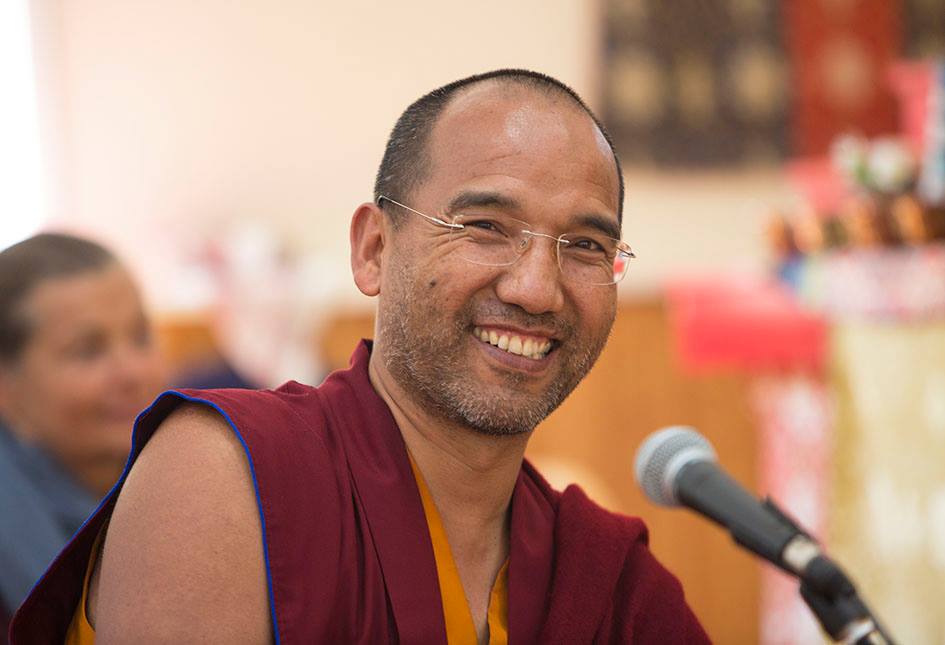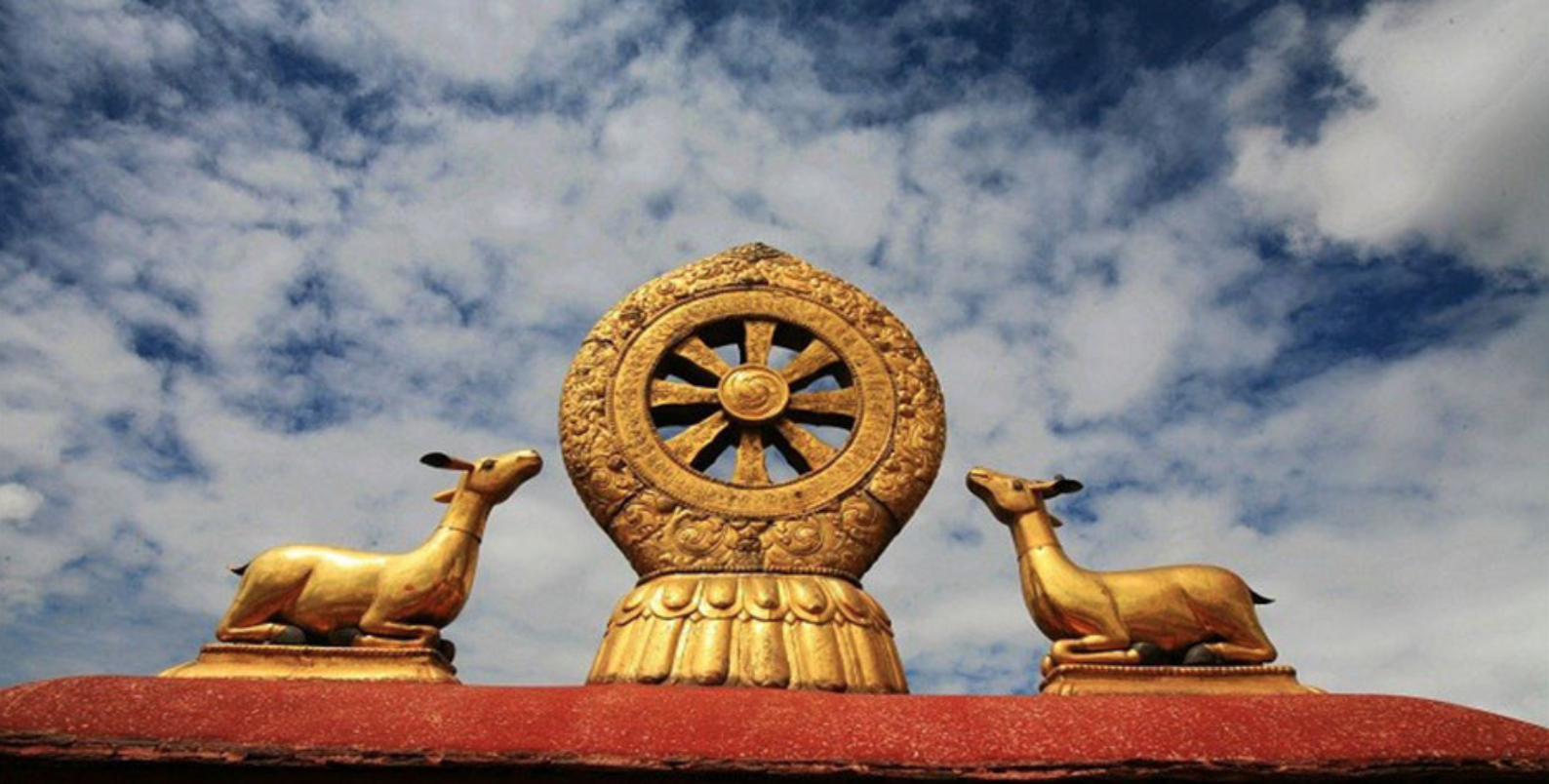Suggestions from Buddhist Lamas: What can we do, when everything drives us crazy?

Sometimes it seems our kindness can be as infinite as the universe. We can forgive any mistakes, even when they have been done on purpose. But sooner or later these short periods of generosity end, and irritation drives us over the edge. When things make us angry, we definitely don’t like ourselves. And even when such periods are gone, we still tend to react to every little adverse situation: people being ignorant, traffic jams, long queues, uncomfortable clothes, close friends, even our own children and parents can irritate us. Anything can set us off. Irritation and anger usually come together. Is it OK to experience this? Should we fight it? And if we don’t, does that make us bad? We talked about it with Buddhist Lamas Tenzin Sangpo, Tsevang Gyatso Negi and Buddhist professor Khenpo Karma Gyurme.
Khenpo Karma Gyurme: “Don’t blame your own faults on others…”
When people say bad things about us, we usually react with anger, irritation or at least disappointment. For example, I was told I’m fat, without trying to think logically, I immediately start getting angry. But let’s face the truth: if I’m overweight, why am I angry if one is pointing that out? It’s the truth. It seems there’s no reason to get angry, but we tend to immediately react without evaluating the situation reasonably.
Anger and irritation are defence mechanisms. But what are you defending yourself from? If we start to analyse this question, we come to the understanding that we defend our own views, or the illusions of what we think we are. When you experience negative emotions, you become exposed, unprotected. But on the other hand, calmness will make you invulnerable, as you have this solid understanding that nothing can bother or irritate you. Whatever happens – you’re not afraid. You’re not worried with what people say. When you think logically, emotions won’t affect you but will simply pass.
How can we do it?
Learn not to interpret what you’ve heard or seen against yourself in a negative way. The important thing is to be patient, which doesn’t mean to be quiet or swallow the insults. Instead it means not to react inside yourself, not to get upset and worried. Rather, continue a dialogue with that person, and don’t start a quarrel or fight in return. You should reasonably explain what went wrong, remaining calm and peaceful. It is a very powerful technique! Look at it from a different angle. You are the one making a sharp remark – no reaction. It doesn’t seem like they’re affected by your attack, the worse thing is – they didn’t pay any attention to what you’ve said. You may notice it didn’t bother them at all. You try one more time, again it doesn’t work. You’ll think twice before trying to sting another person next time, because there’s no result.
Lama Tsevang Gyatso Negi: Irritation is a habit.
In Buddhism it is believed that anger and irritation are one of the three main reasons to be reborn in samsara. They are neither good nor bad – They have always existed and we need them in order to develop ourselves and the nature of our mind. They become negative reactions only when we react and identify ourselves with them.
Irritation has a lot of gross and subtle consequences. The way we deal with it can cause health problems and energetic imbalances. Buddhist teachers often tell students to be aware of every moment of life and observe the state of their minds. It doesn’t mean being tense and afraid to feel, on the contrary, you’re relaxed and simply observe when and why irritation arrises. You analyse how it emerges, and whether you can stop feeling it or not. Anger and irritation are like the flow of a river. If you are aware, you have the choice to go with or against the current.
How can we do it?
Irritation is a habit. It probably wasn’t even created in this life but rather a result of previous reincarnations, and therefore is strongly rooted. It’s just a habit that can be changed. If you have experienced quitting any unhealthy habit, then you know it requires a lot of discipline. The important thing is – not to surrender to emotions. Remember, we have a choice – to get irritated or not.
Meditation, yoga, breathing exercises also play an important role. The more you meditate, the more you observe your mind being calm. Thus you create a standard, to which you’ll be subconsciously striving for in your everyday life. Yoga and breathing exercises will help to balance energy, remove impurities and stabilise emotions in your body.
Lama Tenzin Sangpo: Shift the focus to consequences
Anger is a strong emotion. It can completely absorb us and take control. The same way that irritation can swallow us, but maybe not to the same extent. Think about it: you get angry in the morning, and it seems like everything is against you. You have outbursts one after the other, clinging to this feeling like moss to stones.
When we cling to anger, irritation arises and we become emotionally involved. We can easily see the consequences in our everyday life: conflict, revenge, betrayal, attack – these can all be caused by anger. When one is in peace however, seeing an irritated angry person, one will feel compassion towards them. We understand that they are under the control of their emotions and not being themselves, just like when being under the influence of alcohol.
How can we make it work?
To start with, we need to remember: when irritation arises, we can either keep it or release it, but in both cases we are the ones to whom it causes harm. It’s important to keep this in mind. One can overcome it only by realising how destructive the consequences are for us. We clearly see and understand the results of them. Therefore, knowing the negative side of these emotions, we need to find means to overcoming anger and irritation that works for us. When we can clearly see the harm it does, we will do everything we can to try to avoid being irritated and angry. Buddhists deal with these emotions the same way other people do. Buddhist methods use the understanding of what these feelings are, what they bring to us, and what the result of them are. There are no external forces that can completely save us from anger and irritation. It can only come out of a genuine understanding.
It’s important to know that anger doesn’t make you a bad person. There’s no need to feel guilty. Guilt is destructive. We have a kind of idealistic image of ourselves, where the imaginary “I” can’t do things like shout at somebody, say harsh words, slam the door etc. We simply don’t want to separate us from the illusion of the ideal self. Guilt happens when we don’t like the way we handle a situation and start regretting it. We then try to find ways not to repeat it. This can be useful, because if one doesn’t regret, one won’t try to make changes.
Buddhism is a broad ethic teaching of which many key points we can see in modern psychology. If you are interested in Buddhist philosophy, you’ll be able to know more about it soon as Ukrainian Buddhist community Rangjung Yeshe is building a Buddhist centre Jangchub Choling in Zhytomyr region. Jangchub Choling is not only a future monastery, it’s a place, where you’ll be able to learn Buddhist philosophy, meditation from a lineage of authentic teachers, participate in retreats, and even have a spiritual practice under master’s supervision. Now the centre is being built, and Buddhist community Rangjung Yeshe will be grateful for any donation. Generosity in Buddhism – is one of the greatest virtues, that is the main background for a happy present and future lives. No matter if you believe it, or not.
Translated by Alina Doricheva
Jangchub Choling Centre – https://gomdeua.org/jangchub-choling-ru.php
Make a donation – https://www.liqpay.ua/ru/checkout/i86322090701
Rangjung Yeshe Ukraine on Facebook – https://www.facebook.com/RangjungYesheUkraine/



